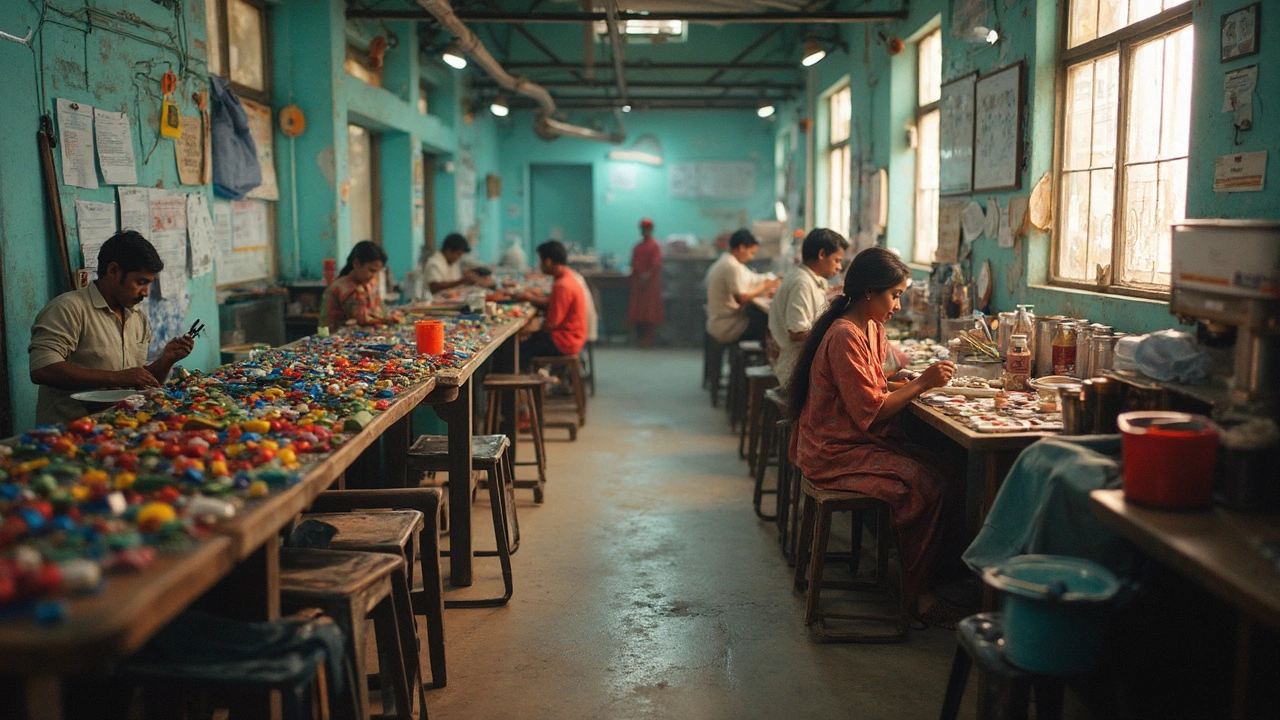India automobile industry
When talking about the India automobile industry, the sector that designs, builds and sells motor vehicles across the country. It’s also known as Indian auto sector, and it touches everything from tiny two‑wheelers to giant trucks. This industry drives employment, fuels related supply chains, and shapes daily life for millions of Indians. Right next to it, car sales, the actual purchase of new and used vehicles by consumers act as a real‑time pulse, telling us whether the market is heating up or cooling down. Another key piece is automotive plastics, lightweight polymer materials used in dashboards, bumpers and fuel tanks that keep cars efficient and affordable. Finally, manufacturing impact, the socioeconomic effects of vehicle production on local economies helps us understand why factories matter beyond just the cars they churn out. Together, these entities form a network where each influences the other: the auto sector encompasses vehicle manufacturing, car sales require reliable supply of automotive plastics, and manufacturing impact feeds back into consumer confidence.
Current challenges and opportunities
In 2025, the India automobile industry hit a steep sales dip, a trend that many attribute to rising fuel prices, tighter credit, and shifting consumer preferences toward electric mobility. This slowdown isn’t just a numbers problem; it reshapes the whole supply chain. For instance, a drop in car sales forces manufacturers to trim production runs, which then reduces demand for automotive plastics. Those polymers, however, are seeing a surge in other sectors—like solar‑panel frames and reusable packaging—so the material market stays lively even if car factories quiet down. On the flip side, the push for greener vehicles is spurring investment in high‑strength, recyclable plastics that cut vehicle weight and improve fuel efficiency. This creates a feedback loop: greener policies push manufacturers to adopt better plastics, which in turn lower vehicle operating costs and could revive car sales over the next few years. The broader manufacturing impact of the auto sector is still massive. Factories in states like Maharashtra, Tamil Nadu and Gujarat employ thousands, stimulate local service businesses, and generate tax revenue that funds infrastructure. When sales slump, those ripple effects can hit the local economy hard, but they also open a chance to pivot toward more sustainable practices—like adopting renewable energy at plants or upskilling workers for electric‑vehicle (EV) assembly lines. Recent government incentives for EV production illustrate this shift: subsidies for battery manufacturing, tax breaks for green factories, and targeted training programs. The result is a nuanced landscape where the auto sector, its sales, plastic supply, and manufacturing footprint each pull on the others, creating both risk and opportunity.
Below you’ll find a curated set of articles that dive deeper into each of these angles. Whether you’re curious about why car sales are stalling, which plastics will dominate 2025, or how manufacturing can boost local welfare, the posts ahead break down the data, offer practical insights, and point to real‑world examples. Use them as a toolbox to understand the current state of the India automobile industry and to spot the trends that could shape its next chapter.
Are Any Cars Made in China Sold in the US?
Ever wondered if cars built in China make their way into American garages? This article digs into which vehicles sold in the US are actually made in China, why that's a big deal, and the twists involved in global manufacturing. You'll get specific examples, learn about trade hurdles, and get tips for spotting a car's true origin. We also look at what all this means for India’s car industry in a changing world.
- manufacturing
- India
- food processing
- garden tips
- rice cultivation
- government schemes
- balcony garden
- urban gardening
- balcony gardening
- profitable business
- business ideas
- plastic manufacturing
- drip irrigation
- plant care
- steel manufacturing
- sustainable gardening
- startup ideas
- steel industry
- flower gardening
- textile manufacturers






